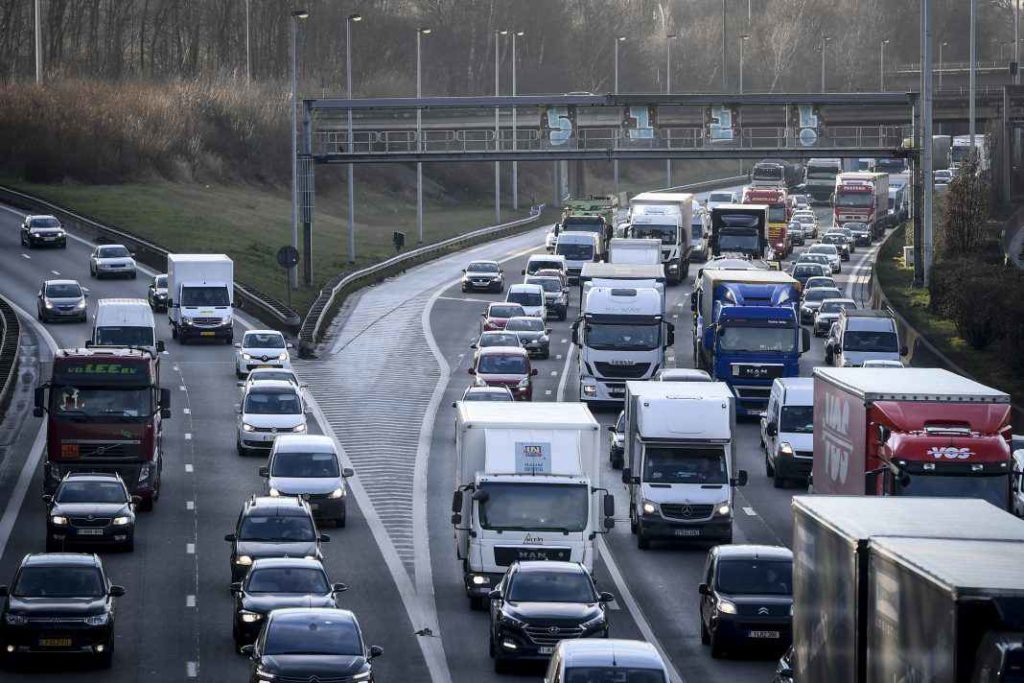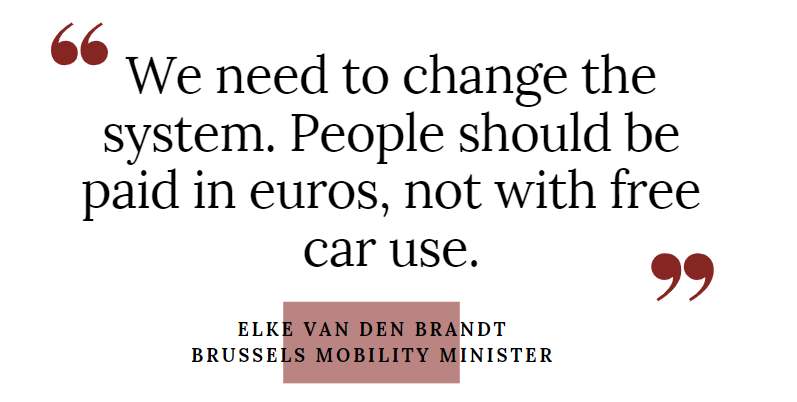Even though company cars disproportionately contribute to traffic congestion and pollution, European governments subsidise corporate-owned fleets for up to €32 billion per year, a report by the Brussels-based Transport & Environment think tank shows.
Most European countries heavily subsidise company cars, but Belgium takes the crown: it gives €6,542 of subsidies per corporate vehicle (which means that each Belgian taxpayer gives €196 per year to subsidise company cars). Other countries that highly subside their corporate fleets are Poland (€5,157), Spain (€3,498), Italy (€2,233) and France (€1,569).
"The money that helps companies buy cars applying VAT returns and write-offs come from your pocket," the think tank's report states."EU27 and UK governments are pouring over €32 billion of public money every year to help companies buy polluting cars."
While Germany is the only country in the European top 6 below the €1,000 bar (with €845 of subsidies per vehicle), it has the highest total true fleet subsidy – almost €8 billion.
Government money encouraging traffic jams
The high tax rates in Belgium often make it more financially attractive for employers to reward workers with cars rather than better wages. A company car often also comes with a fuel card, meaning that people do not have to pay for their own fuel. While this has been a big advantage over the last months, which have seen fuel prices skyrocket, these cards also disincentivise cleaner and greener transport modes.
“How can you convince somebody who gets a free car with their job, plus free petrol and free parking spots in front of their house and at their office, to take the train instead? Giving a car is cheaper than paying people in euros," Brussels Mobility Minister Elke Van den Brandt told Forbes, adding that this also means that "a lot of money from the Federal Government is encouraging traffic jams."
The think tank emphasised that subsidised car ownership leads to additional car usage as corporate cars get driven more than two times further than privately-owned ones – increasing congestion and pollution – and contributing to road danger.
"The company car schemes are also unfair as the people most likely to benefit from them are situated in higher income groups; company car schemes should therefore be phased out," stated the report.
Politically, however, this is a highly controversial topic as a company car is considered an extremely popular perk. "People who have free car use like it," agreed Van den Brandt. "It is comfortable. We need to change the system. People should be paid in euros, not with free car use."
Therefore, she is in favour of giving employees a "mobility budget," which allows them to choose for themselves how to spend it, and offering a more environmentally friendly mode. If the subsidy is offered at all, it should be more socially progressive and also support the "healthy, ecological choice," she said
Instead, figures from HR service provider Securex in early September showed that the number of employees with a company car in Belgium has only increased (by 7%) since the start of 2019. Since that year, a scheme is also in place to allow employees to choose between company cars and public transport benefits (such as reduced taxi costs, free bicycles, or shared car services), but has had low take-up.
Related News
- EU car lobby blocks tougher emissions standards
- 'Unlocked from congestion': What Brussels could look like without cars
- Belgians commuting by car as much as before pandemic
In the meantime, the Brussels-Capital Region has made efforts to decrease the number of cars across the region and push people towards walking, cycling and using the public transport network more.
However, the quick roll-out of extra cycle lanes on one of Brussels busiest streets last year was heavily criticised as a form of "guerilla urbanism" and the roll-out of the regional Good Move mobility plan, aiming to prioritise cyclists and pedestrians over cars, has also seen considerable pushback
"While there is better infrastructure for cyclists and pedestrians [in Brussels] now, the car traffic is still the same partly because of the incredibly stupid business car scheme where you get part of your salary as a car," stated Philipp Cerny, the Berlin-based creator of the EU Mobility Atlas. "It just promotes more and more car use."


